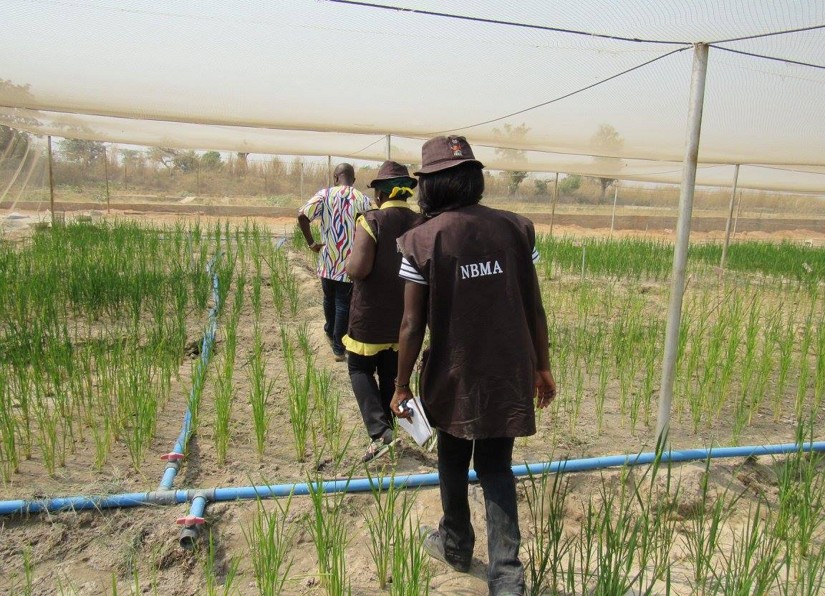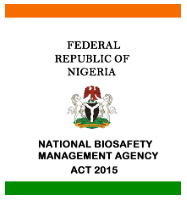- Reach us via:
- +2348082254683
- nbma@nbma.gov.ng
NBMA TRAINS STAFF ON BIOSAFETY REGULATIONS
The National Biosafety Management Agency (NBMA) has organized a biosafety refresher course for its staff.
The training which took place today (31 may2021) in Abuja, was organized in collaboration with the programme for biosafety systems (PBS).
The Director General/Chief Executive Officer of NBMA Dr Rufus Ebegba in a remark at the training said NBMA will serve the country well and continue to ensure a holistic biosafety system for the safety of human health and the environment in the area of regulation of modern biotechnology. According to the DG/CEO, the training was to update staff on emerging biosafety issues and to improve the proficiency of the staff of the Agency as biosafety is a dynamic issue.
We are also mindful of organisms that are harmful to human health and the environment of which we are making strives by developing national policy on biosecurity to ensure that biosecurity is enshrined in the country. This will exhibit our competence to ensure that our mandate is delivered in the area of ensuring biosecurity
Dr. Rufus Ebegba

The DG/CEO stated that no genetically modified organisms that is unsafe will be allowed in the country as all previous GMOs were confirmed safe before release and acknowledged the wonderful support of other ministries, agencies and organizations who have worked with the Agency so far to drive the mission and vision of the agency forward. While highlighting the importance of the media, Dr Ebegba stressed the fact that media should not use their channel to spread false information, instead spread the honest truth in order to promote the development of the nation.
Country Director Programme for Biosafety System in Nigeria, Dr Mattew Dore, gave a goodwill message and appreciated the growth of the agency during the past six years of its existence. He further expressed his joy on the capacity building training held by the agency as this was a great opportunity to learn and support the growth of the economy and protection of the environment. The training had various presentation such as national policy in biotechnology, the NBMA act 2015 as amended (which includes the application of gene drive, gene editing and synthetic biology), confined field trial inspections, the Cartagena protocol on biosafety, Biosafety risk assessment and risk management, all bothering around regulations of Biosafety and ensuring Biosecurity in the country.
The training also saw presentation on introduction to genome editing (which dealt with regulation of gene editing across different countries like Argentina, Canada and United States of America and were deeply explained during the training), national biosafety policy and introduction to food safety. The one-day capacity building training which had over forty staff of the Agency in attendance introduced staff to the basic elements of biosafety, the procedure of Biosafety inspection, biosecurity, Biotechnology Policy and the NBMA Act 2015 (as amended), Cartagena Protocol on Biosafety and the National Biosafety Policy 2017.
Gloria Ogbaki
Head Press and Protocol Unit
National Biosafety Management Agency



